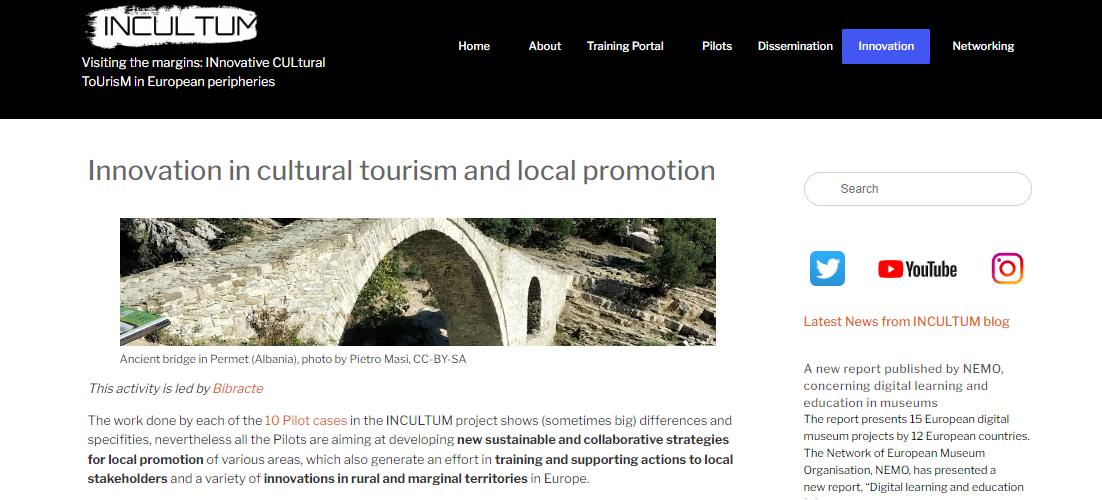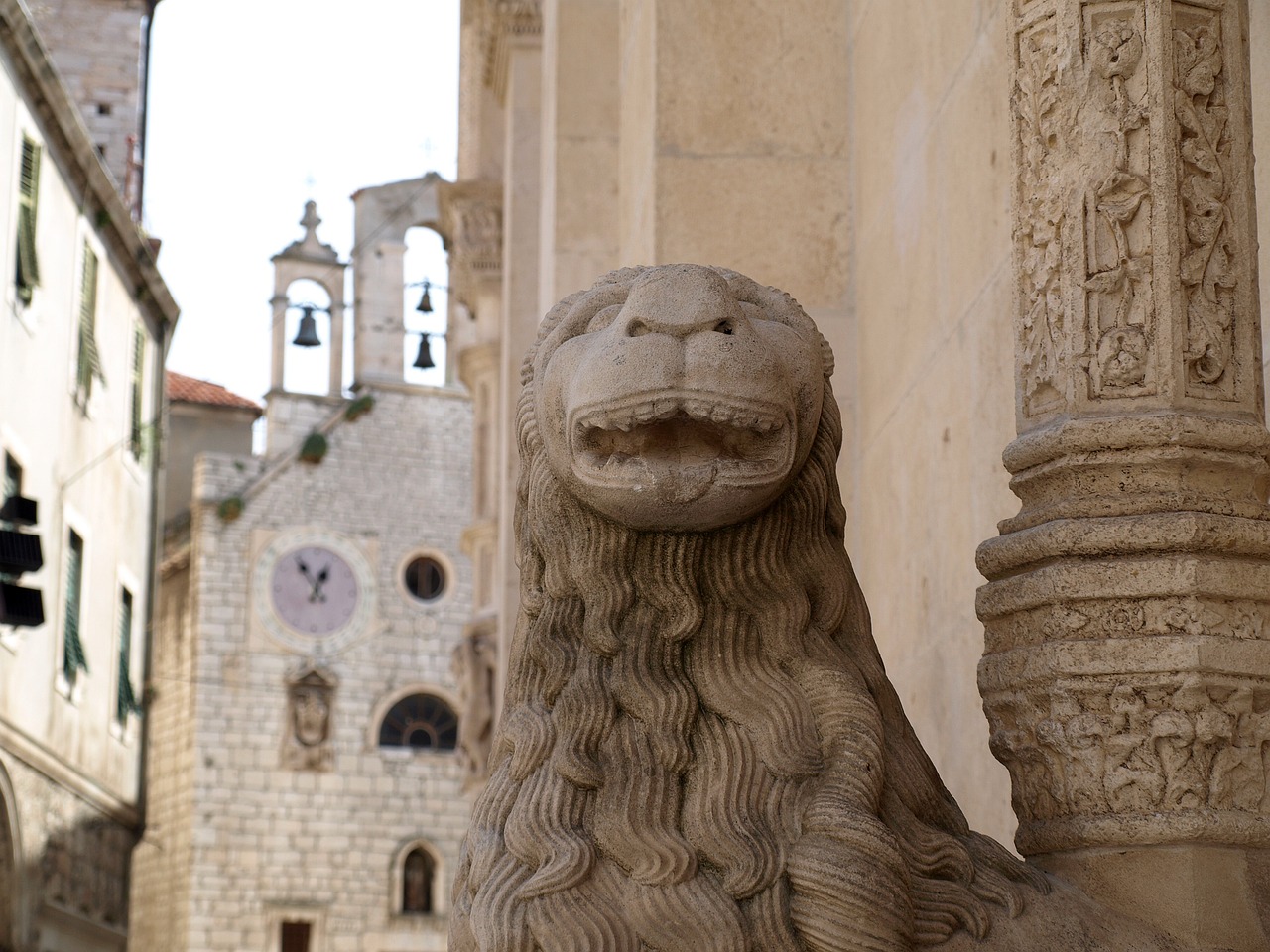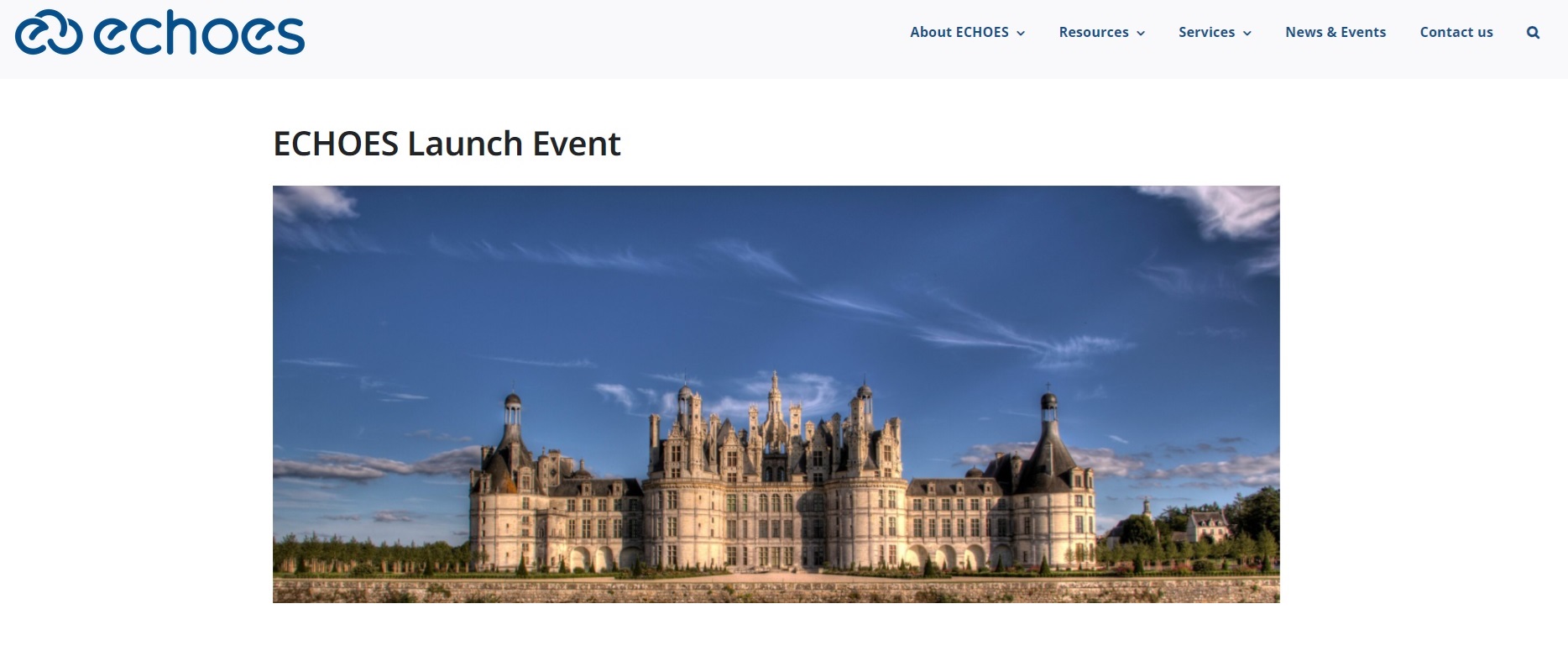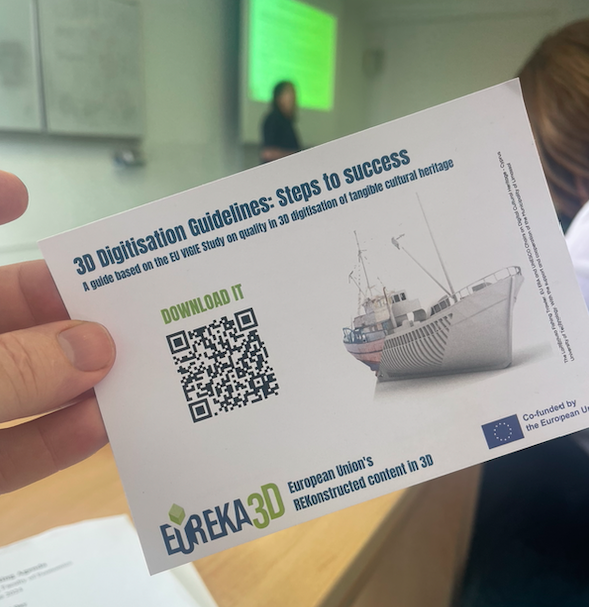
The work done by each of the 10 Pilot cases in the INCULTUM project shows (sometimes big) differences and specifities, nevertheless all the Pilots are aiming at developing new sustainable and collaborative strategies for local promotion of various areas, which also generate an effort in training and supporting actions to local stakeholders and a variety of innovations in rural and marginal territories in Europe.
The coordination for fostering synergies and common strategies in innovation is important to facilitate Pilots’ progress and to identify solutions to common challenges. In this sense, transversality with the INCULTUM innovation manager (dr. Vincent Guichard, Bibracte) is being promoted among partners. A series of innovation factsheets is currently being developed to disseminate the work done by each Pilot for other stakeholders to take inspiration from.
All the information about the work done by the Pilots is now available in the new section “Innovation” available in the project’s website. The section currently includes:
- access to the Midterm interim report of the INCULTUM Pilots progress and innovation
- summary of the 10 innovation areas identified and deployed by the Pilots
- innovation factsheet about the strategies deployed in Bibracte (Pilot 6 “Ancient Paths into the Future”)
More updates are expected with additonal learning and descriptive material developed by each Pilot.
View the Innovation section here: https://incultum.eu/innovation/










